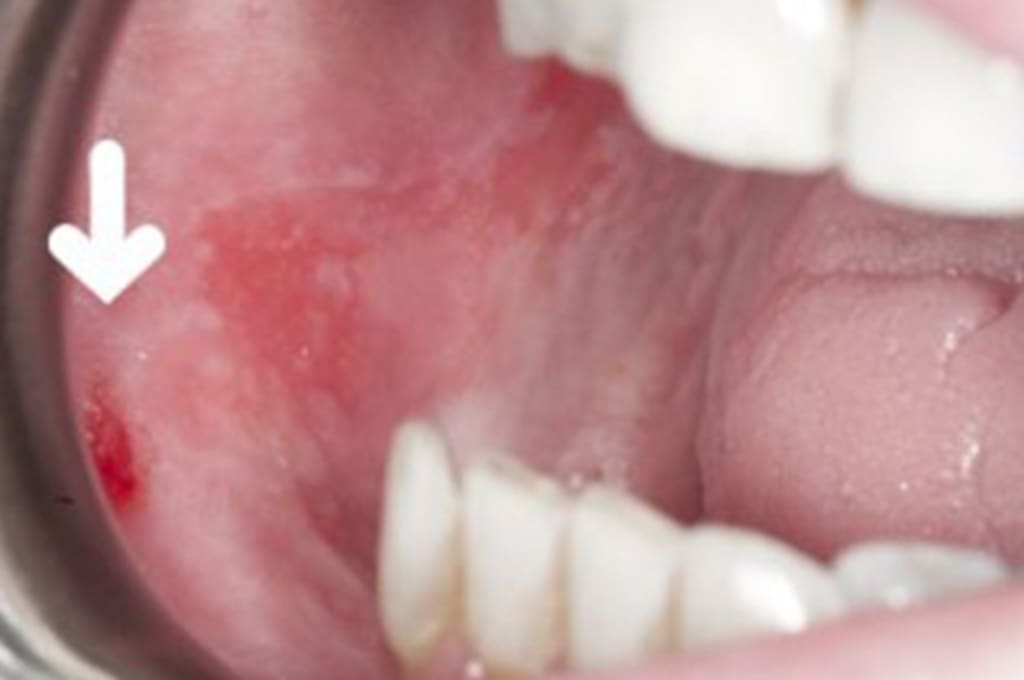Oral Cancer: Overview, Symptoms, Diagnosis & Treatment
The MaxFac Clinic

Oral squamous cell carcinoma (OSCC) is well-known cancer that contributes to more than a 90percent of all oral cancer. In this post, we will go over its clinical aspects as well as the differential diagnosis. In terms of symptoms, pain is the most common, with the tongue and the floor of the mouth having the highest prevalence.
OSCC appears as an erytholeukoplastic region without symptoms in the early stages, but in the advanced stages, there are ulcers and lumps with uneven edges that are unyielding to touch. Other oral malignant illnesses, such as lymphomas, sarcomas, and metastases, have faster growth rates than the normal OSCC and should be diagnosed differently.
Overview
Oral malignancies grow in the mouth or oral cavity. Cancer develops from the cells that line the mouth and oral cavity, with Squamous cell carcinoma being the most frequent disease. Because the oral cavity is a component of the Head & Neck area and is engaged in our everyday activities such as eating, drinking, speaking, and so on, early detection and treatment is critical for better cancer management and reducing treatment side effects.
Symptoms
The oral cavity is a convenient location for self-examination or evaluation by medical specialists. The expense of identifying these lesions is cheap, as it consists of a simple inspection with light and, if necessary, a biopsy that may be conducted in the clinic.
Any mouth or lip sore or lump that does not heal in two weeks, a red or white patch that cannot be wiped away, bleeding from the oral cavity, chronic discomfort in the mouth, trouble swallowing, a loose tooth, and/or a foul odor in the oral cavity are all indications of oral cancer.
Treatments
The three primary cancer treatment options are surgery, radiation, and chemotherapy. Among these, surgery is the most commonly used therapeutic technique. Early-stage, 1st and 2nd, malignancies are treated solely with surgery. Surgery will be followed by adjuvant therapy in the form of radiation therapy, with or without chemotherapy, in an advanced stage, 3rd and 4th, malignancies based on high-risk findings on the histopathology report.
In recent years, there has been substantial advancement in surgery in which the tissue destroyed as a result of surgery is restored during the same operation to produce better functional results in the form of speech, swallowing, and cosmesis. The key to attaining the greatest results following oral cavity cancer therapy is rehabilitation.
Preventions
Oral cancer is a preventable disease since it is caused by harmful lifestyle choices, such as the use of cigarettes and alcohol. Tobacco and alcohol are both carcinogenic, which means they contain chemicals that may damage DNA in cells and cause cancer. Smoking and drinking alcohol both raise the chance of developing mouth cancer. The danger is increased considerably when smoking and drinking are combined.
Oral Cancer Treatment In Mumbai
Oral or Mouth cancer treatment in Mumbai is best in Fortis Hospital. For patients with largemouth cancers, Fortis provides comprehensive care in a comfortable and supportive environment, including chemotherapy, highly focused forms of radiation therapy such as intensity-modulated radiation therapy, and complex technology results therapies such as free tissue transfer or free flaps to rebuild the mouth and face.





Comments
There are no comments for this story
Be the first to respond and start the conversation.